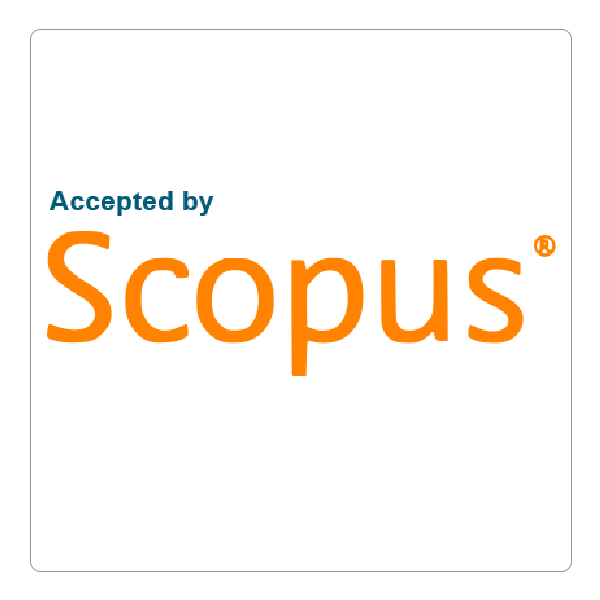How to Cite This Article
Maolood, Ismail Y. and Mhmood, Abdulrahman A.
(2021)
"Survey of Public Knowledge and Implementation Regarding COVID-19 in Sulaymaniyah City,"
Polytechnic Journal: Vol. 11:
Iss.
2, Article 7.
DOI: https://doi.org/10.25156/ptj.v11n2y2021.pp37-41
Document Type
Original Article
Abstract
The currently pandemic virus called SARS-CoV-2 is an international health issue that we have interacted with since World War II. The virus was discovered in the Chinese city of Wuhan in 2019 and has since spread worldwide. Globally, the number of cases is increasing, with new cases being reported in Asia, Africa, the Americas, and Europe. This paper is intended to analyze 2019 novel coronavirus (COVID-19) knowledge, perceptions, and behaviors toward the substance within the general population in the city of Sulaymaniyah. The study was conducted as a cross-sectional survey with 100 adults from various locations throughout Sulaymaniyah. These places were selected based on the ease of access for survey participants (location and collaboration). A survey questionnaire was structured to gather details regarding gender, age, ethnicity, and education level for all respondents. Other metrics assess details on the illness, its origin, method of transmission, symptoms and indications, incubation time, transmission period, and prevention steps. Eventually, we regained that people have been given enough instructions by the ministry of world health and social media. The majority of Sulaymaniyah residents are aware of how to protect themselves against COVID-19. The results suggest that clear messaging from government and health agencies are required to increase awareness and attitudes and that health promotion campaigns are needed to improve knowledge and attitudes.
Publication Date
12-30-2021
References
Sazan, Q. M., S. O. Majed, B. A. Ali, P. J. Jalal, S. H. Azeez, and K. A. Mohammad. 2020. Epidemiological approach of SARS-CoV2 in the first month of appearance in the Kurdistan region of Iraq. Eur. J. Mol. Clin. Med. 7(11): 2853-2865.
Azlan, A. A., M. R. Hamzah, T. J. Sern, S. H. Ayub and E, Mohamad. 2020. Public knowledge, attitudes and practices towards COVID-19: A cross-sectional study in Malaysia. PLoS One. 15(5): 1-15.
Cao, J., W. J. Tu, W. Cheng, L. Yu, Y. K. Liu, X. Hu and Q. Liu. 2019. Clinical features and short-term outcomes of 102 patients with Coronavirus disease 2019 in Wuhan, China 2. Institute of Radiation Medicine, China Academy of Medical Science and Peking Union Medical College, Tianjin, China 3. Department of Infectious. Vol. 238. Oxford University Press, Oxford, United Kingdom. p4-21.
Channappanavar, R. and S. Perlman. 2017. Pathogenic human coronavirus infections: Causes and consequences of cytokine storm and immunopathology. Semin. Immunopathol. 39(5): 529-539.
Guan, W. J., Z. Y. Ni and Y. Hu Y. 2020. Clinical characteristics of Coronavirus disease 2019 in China. N. Engl. J. Med. 382(18): 1708-1720.
Huang, C., Y. Wang, X. Li, L. Ren, J. Zhao, Y. Hu, L. Zhang, G. Fan, J. Xu, X. Gu, Z. Cheng, T. Yu, J. Xia, Y. Wei, W. Wu, X. Xie, W. Yin, H. Li, M. Liu, Y. Xiao, H. Gao, L. Guo, J. Xie, G. Wang, R. Jiang, Z. Gao, Q. Jin, J. Wang J and B. Cao. 2020. Clinical features of patients infected with 2019 novel Coronavirus in Wuhan, China. Lancet. 395(10223): 497-506.
Kurdistan Regional Government. 2021. Cases in the Kurdistan Region. Kurdistan Regional Government, Cabinet.
Lee, M., B. A. Kang and M. You. 2021. Knowledge, attitudes, and practices (KAP) toward COVID-19: A cross-sectional study in South Korea. BMC Public Health. 21(1): 1-10.
Majid, U., A. Wasim, S. Bakshi and J. Truong. 2020. Knowledge, (mis-)conceptions, risk perception, and behavior change during pandemics: A scoping review of 149 studies. Public Unders. Sci. 29(8): 777-799.
Medhi, R., P. Srinoi, N. Ngo, H. V. Tran and T. R. Lee. 2020. Nanoparticle-based strategies to combat COVID-19. ACS Appl. Nano Mater. 3(9): 8557-8580.
Merad, M. and J. C. Martin. 2020. Pathological inflammation in patients with COVID-19: A key role for monocytes and macrophages. Nat. Rev. Immunol. 20(6): 355-362.
Merza, M. A., A. A. H. Al Mezori and H. M. Mohammed. 2020. COVID-19 outbreak in Iraqi Kurdistan: The first report characterizing epidemiological, clinical, laboratory, and radiological findings of the disease. Diabetes Metab. Syndr. 14(4): 547-554.
Person, B., F. Sy, K. Holton, B. Govert, A. Liang, National Center for Inectious Diseases/SARS Community Outreach Team. 2004. Fear and stigma: The epidemic within the SARS outbreak. Emerg. Infect. Dis. 10(2): 358-363.
Wali, Z. Z. (2020) First Cases of Coronavirus Confirmed in Kurdistan Region. RUDAW, Erbil, Iraq.
Wu, C., X. Chen, Y. Cai, J. Xia, X. Zhou, S. Xu, H. Huang, L. Zhang, X. Zhou, C. Du, Y. Zhang, J. Song, S. Wang, Y. Chao, Z. Yang, J. Xu, X. Zhou, D. Chen, W. Xiong, L. Xu, F. Zhou, J. Jiang, C. Bai, J. Zheng and Y. Song. 2020. Risk factors associated with acute respiratory distress syndrome and death in patients with Coronavirus disease 2019 pneumonia in Wuhan, China. JAMA Internal Med. 180(7): 934-943.
Xinhua. (2020) Iraq Announces 1st Case of COVID-19 in Najaf, Chinadaily. Xinhua, China.











Follow us: